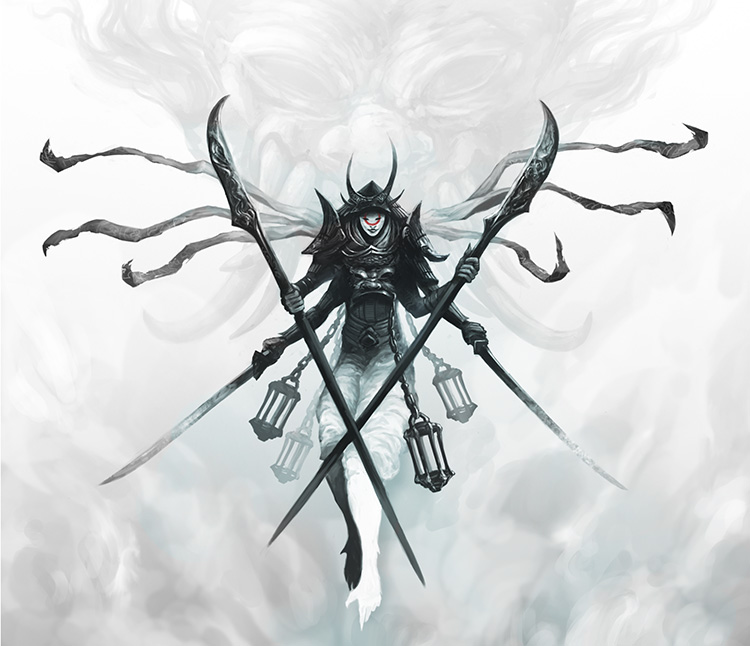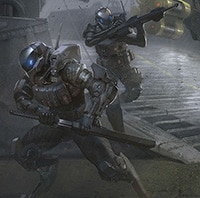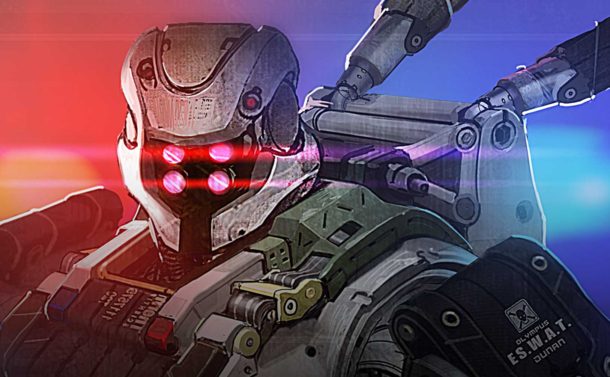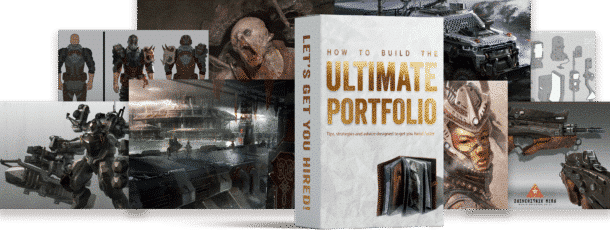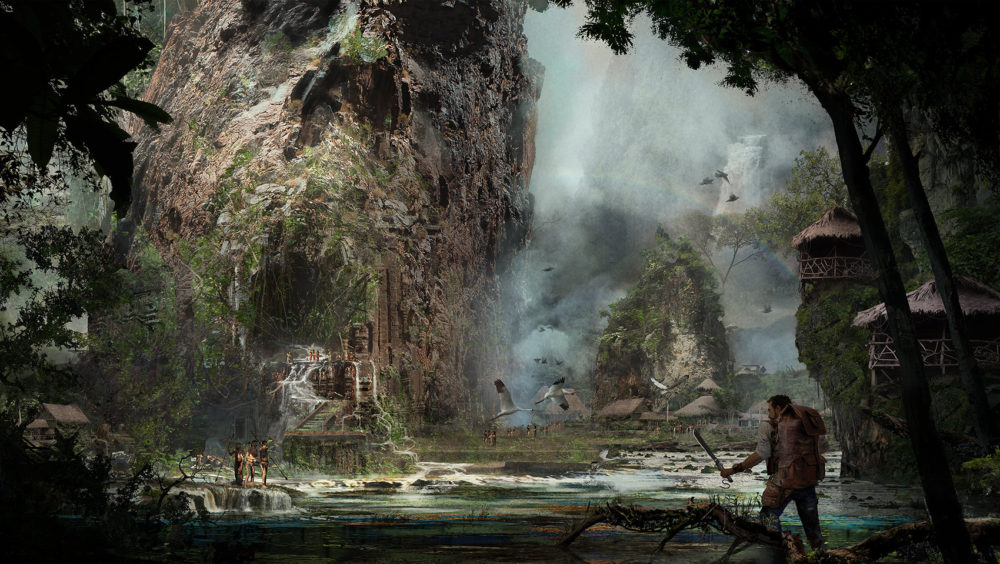
by Eliott Lilly | May 2, 2016 | Questions
Question submitted by Jonathan E. Concept art by Hector Ruiz

Hey eliott, I have several questions for you:
The first: How easy is it to transfer positions within a company? For instance, if I worked in UI, how “easy” is it to make a jump to concept art if I started feeling a hankering? I’ve been considering UI, as it turned out a lot of the projects I worked on required it, so I have a fairly complete porfolio built up out of the gate. I’m also hesitant about wearing out my artistic ambitions due to the stresses of the AAA world, so coming into a company from a different door and approaching concept art from within seems somewhat feasible. Maybe I’m crazy : )
That depends on a lot of factors such as timing, how “good” you are, who you know, etc. If you can prove to the higher ups that you can do more than you are currently doing, then there may be a chance for you to shift your position at the studio, but you will likely have to wait until a position opens. There’s no guarantees here, but at least you know the people who do the hiring.
If you wanted to jump from Ui to concept art, then you will need to show a solid portfolio. Keep in mind though, that those are two very different skill sets and its very difficult to develop a solid body of work for each talent. If you are worried about bunign out, maybe you should consider working at a smaller game studio where they will require you to do a bit of everything (not just UI or Concept art, but both…and more)
The second question: Do you feel that you were tasked so heavily with creating weapons for Treyarch because their games revolved around them? To put it another way, would you perhaps not be quite so specialized at a company like Bioware, where you see a whole variety of concepts are needed to build their fantasy / scifi worlds?
I was tasked with designing weapons for Treyacrh because I set my portfolio up to prove that I could. Since I am a freelance artists, I thought it would be better to be “known” as THE weapons guy rather than just another artist. I made a conscious effort to display weapons in my portfolio, and I was hired to do just that. I can, of course. draw other things, but my portfolio was specifically designed to target companies that make first person shooter video games. If I was an in-house artist, then I would set up my portfolio with a bit more of a general approach, showcasing other things besides weapons.
The third question: Is there anyone else that might weigh in on what other companies are like? (Perhaps there might be some other angles worth hearing about).
It’s always a great idea to seek other peoples perspective and opinions. I can’t recommend anyone off the top of my head, but I am sure you can reach out to your favorite artists and they will respond. Might take them a while though, so be patient.
Hope that helps.
-Eliott
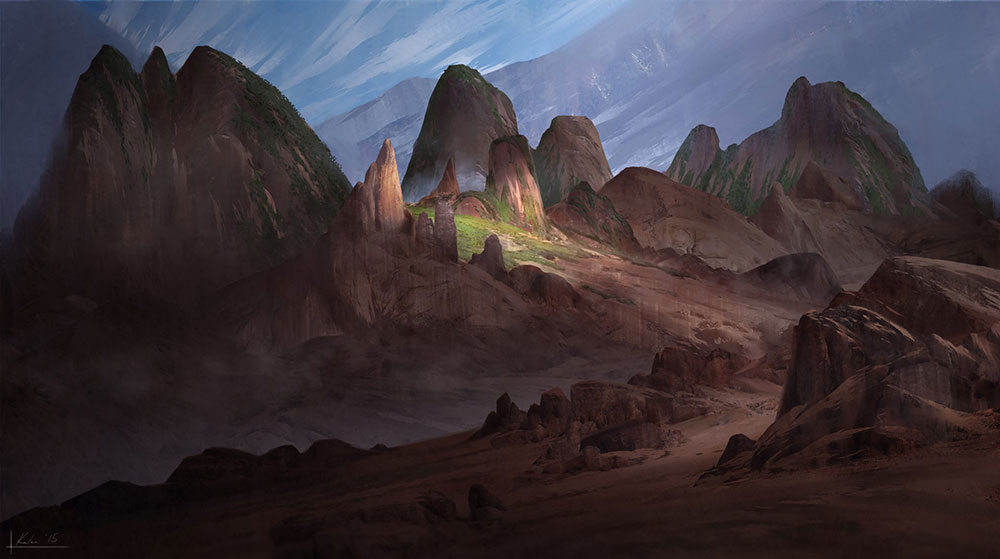
by Eliott Lilly | Apr 25, 2016 | Questions
Question Submitted from Mandee H. Concept art by Kalen Chock
Hi, I am a sophomore in highschool and I was wondering:
What kind of schools should I look at if I am interested in becoming a concept artist for games? What kind of degree should I shoot for? Is getting an online degree a good idea? Should I start off my career as a freelancer or working for a studio? As I said earlier, I’m still in high school so I am not quite sure what to do when I graduate to start off my career.
Thank you for taking the time to read my email.
Hey Mandee, thanks for reaching out. I’m glad you found the blog. My responses are inline.
What kind of schools should I look at if I am interested in becoming a concept artist for games?
- Have you visited the Resources page? There’s an entire section dedicated to Concept art focused schools and even more info can be had in the downloadable .pdf list.
What kind of degree should I shoot for? Is getting an online degree a good idea?
- In this industry since you will be hired based on your merits as an artist (aka. your portoflio) degrees don’t really mater as much. Don’t focus on the degree itself, rather the education you will receive. I wrote “An Insider’s Guide For Student’s” for student’s like yourself who have specific questions about the types of classes you should be taking, colleges to attend, etc. Check out chapter 3 (How to make the most of your education and schooling).
Should I start off my career as a freelancer or working for a studio?
- If you want to work in video games, then I would aim to be an in-house artist before you set off on your own to freelance. This will give you time to familiarize yourself with the process of game development, grow as an artist and develop the communication skills (both vocally and artistically) to deliver successful concepts to clients. Plus the work experience will look good on your resume, and future clients will have confidence in your abilities knowing that you have worked on “big” projects in the past. If you have the time, you may also consider taking an online course from Chatham University or other similar educational institutions. Since knowledge is key to everything you do in the real world, having a degree or two might help you in the future
If you need further insight, I would highly recommend that you pick up your own copy of An Insider’s Guide For Students. I wrote that book as straightforward and honest as I could in hopes to answer your exact questions and more. Check it out and let me know what you think. If you still have questions after reading it, I would be happy to answer them.
-Eliott
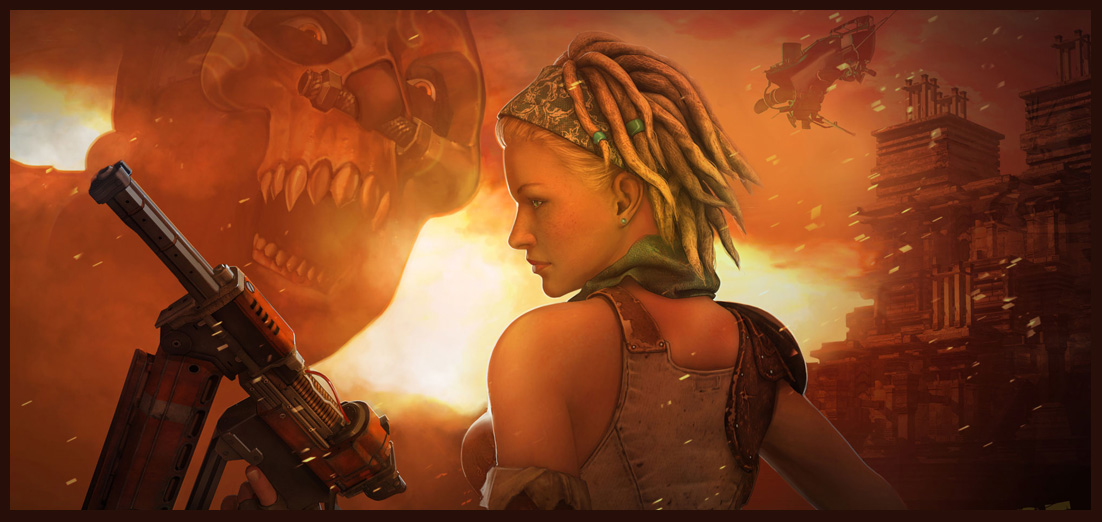
by Eliott Lilly | Apr 18, 2016 | Questions
Question submitted by Oliver B.
Hey Eliott, I’m an aspiring concept artist (hobbyist for now, still in high school), I have a important question concerning concept art. After a few months I realized that it takes an incredible amount of work to make it into the industry, I’ve heard some artists who are really amazing worked their asses of for years. Im talking about amazing, high-end professionals such as yourself or even guys like Eytan Zana, John j. Park or Maciej Kuciara. They obviously spend at least 10 hours a day on this stuff for years (probably more?). So Im asking you how it is possible to get this amount of work done each and every day. I’m usually totally exhausted after 5 hours of painting, when the brain runs out of glucose. How should I manage to triple this amount then?

Hey Oliver, that’s a great question. The short answer is: find the motivation to keep going. Your “drive” (willingness to succeed) is your strongest ally. If its really important to you, you will find a way to power through the exhaustion. Take breaks of course- but power through. How do you find the time? Brace yourself… you might not like the answer. The reality is: to get as good as those artists you mentioned, then you will likely need to sacrifice as I am sure they did (I know I had to). Here are some things you can do
Wake up earlier and/or go to sleep later.
If you can gain an extra hour each day, that adds up to an additional 7 hours a week. Going to high-school I averaged 6-8 hours of sleep each night. In college it was 3-5. Right now, in my professional career I get about 6. (but the hard work in college has already pad off. I got the job) It can be exhausting, but if you are able to develop and maintain a routine of discipline you’d be better off for it.
Get your parents involved
Inform your parents of your intentions and plans, so they understand if you need to stay up later and do not volunteer you for after-school activities/ events that you may not even care for. It also helps if the will sign you up for art classes, etc. My dad used to wake me up at 5 am, so we could get to school an hour early and draw.
Draw in your spare time
Every chance you get. Between classes. During lunch. Got five minutes?-Pull out your sketchbook and doodle. You’d be surprised how much you can draw while taking the bus to school or sitting on the toilet.
Reduce the amount of tv watching (And Video games too).
Keep the tv watching/ video game playing down to an hour each day. Seriously. Use the gained time to draw.
Take summer art classes
Even though school is out, you will need to stay sharp on those skills. While everyone else is out playing, you need to be drawing and improving. Sucks, i know, but this is the truth. I took college summer classes 4 years in a row while still attending high school. Good times.
Don’t worry, those are just a few suggestions- you can still have a social life with friends. I know they sound intensive, but the more you can do, the better off you will be. In my book: “An Insiders Guide For Students” I talk about this very topic and cover in great length, the things you should be doing on your own time, what you should be learning and more. If you haven’t already, you might consider picking up a copy for a more in depth answer.
Hope that helps.
-Eliott
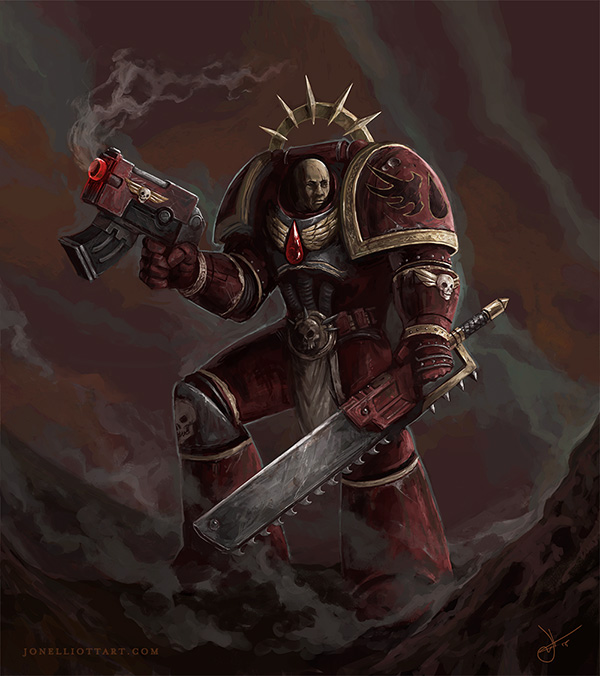
by Eliott Lilly | Apr 11, 2016 | Questions
Question submitted by Jonathan E.
Hey Eliott!
What are the day-to-day operations of a concept artist are like? I am interested to know the sort of artistic executions concept artists are responsible for, and what I can expect to be doing as one (Not the daily routine that a concept artist goes through) Will I be working on finished images or sketches? The artwork I’ve seen on websites like Artstation or Kotaku is always “finished” and “complete”, yet I heard from an ex-Blizzard employee, that the majority of his day was spent in black and white line drawings. I’ve also heard it said “I hope you like drawing people’s faces for 10 hours a day for 4 years”. That of course seems extreme, but the point very much comes across. So which one is it? To that same point, what sort of workloads do concept artists deal with? I’ve heard it said (also from an ex-Blizzard employee) that concept artists don’t endure the same levels of crunch as the “heavy lifting” sits within the post-production / polishing phases. Is this true?
Thanks so much! Check out some of my artwork.
Jonathan
Hey Jason, great questions. I think it all depends on your work situation.
If you are Freelancing:
Mitigating a client’s expectations is crucial since they will be offering you work based on your perceived abilities. If your portfolio showcases work of a high caliber, and you promise the client a similar result, then that is what they will come to expect from you. When I deal with clients, I often explain to them that in the same time it takes me to do a single super polished image, I can produce 6 or 8 simple greyscale studies that further explore ideas. Since it’s their dollar I leave the final choice up to them, but here’s what I’ve learned:
Bigger companies with bigger budgets, don’t really flinch at this, since they usually extend month long contracts (instead of a piece-by-piece basis) and they ask me to do a combination of both. For example, when working on Black Ops 3, I was the “Weapons guy”. Turnaround times were tight, and for efficiency, my daily deliverables were done strictly in line drawings, greyscale images, napkin doodles etc. Once the design was approved I would be given a bit more time to do the final render pass in color. Occasionally I would even have enough time to use 3d/ Keyshot to assist.
And that’s all did for 2 years. Weapons (and the occasional vehicle). I must’ve done 300 weapon concepts to arrive at the 27 that actually made it into the game. That’s the reality. The comment about “drawing people’s faces for 10 hours a day for 4 years” isn’t really that far off.
Working with smaller companies and/ or individuals is a similar experience, but, more emphasis and time is usually given to the final image. Since it will usually be used for both production and marketing. I still might give them a greyscale image or two for speed, but will do far fewer revisions and idea exploration. The subject matter I get to draw also varies greatly, since they may need me to do several things, instead of one thing over and over again.
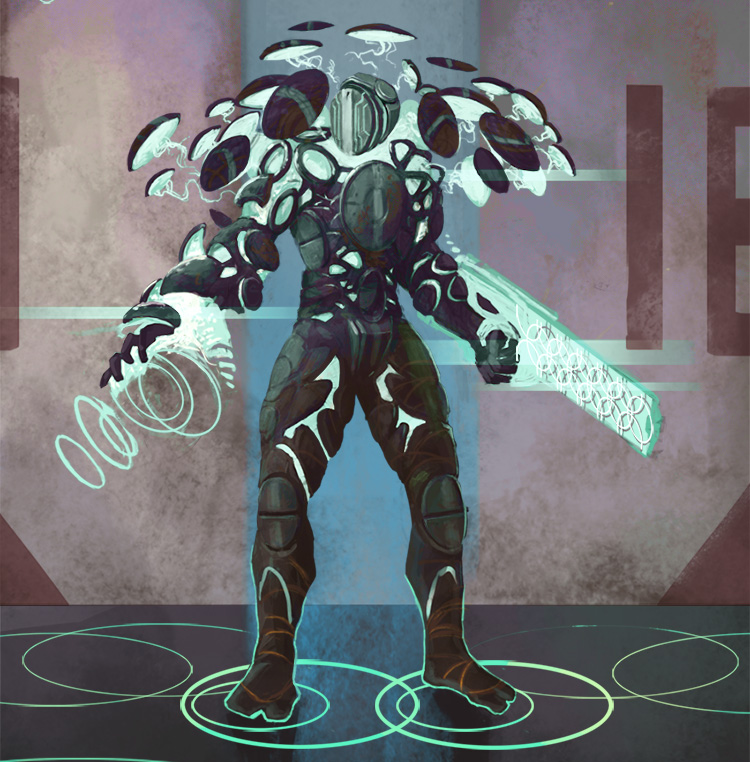
If you are working in house:
My experience has varied working from job to job a studio. Because the Art Director is in the same building, the feedback process is much quicker and artwork can be reviewed in real time. There was also friendly competition between the other in house concept guys, and we were all trying to out-do each other. As such, I spent most, if not all, of my time painting high quality images in color. (Still not to the level of polish you’d find Art Station though).
Even though the “heavy lifting” is done in the polish phase of game creation, a concept artist work is never really done. Trust me, when everyone else is crunching in the studio, you will be too. Partly cuz you’ll get random tasks from your art director, (that you will likely have absolutely no business doing) but also in part because you will feel guilty about leaving at 6pm, when everyone else is staying till 10. There’s a compromise thereof course, but you get the notion.

Ultimately, the theme that remains consistent between every type of clients is their desire for the highest quality of work in the shortest amount of time, and at the lowest cost to them. It’s up to you to decide what you are comfortable providing them with.
I hope this helps.
-Eliott
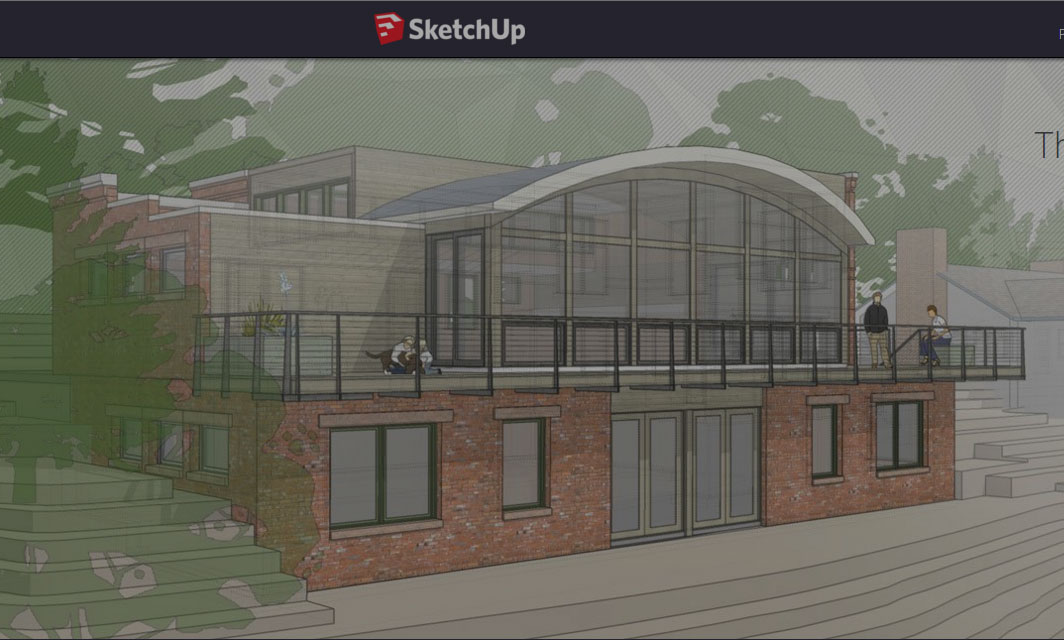
by Eliott Lilly | Feb 17, 2016 | Questions
Question submitted by Noel P.
I’m currently learning Google Sketchup. Would that be adequate for the industry?
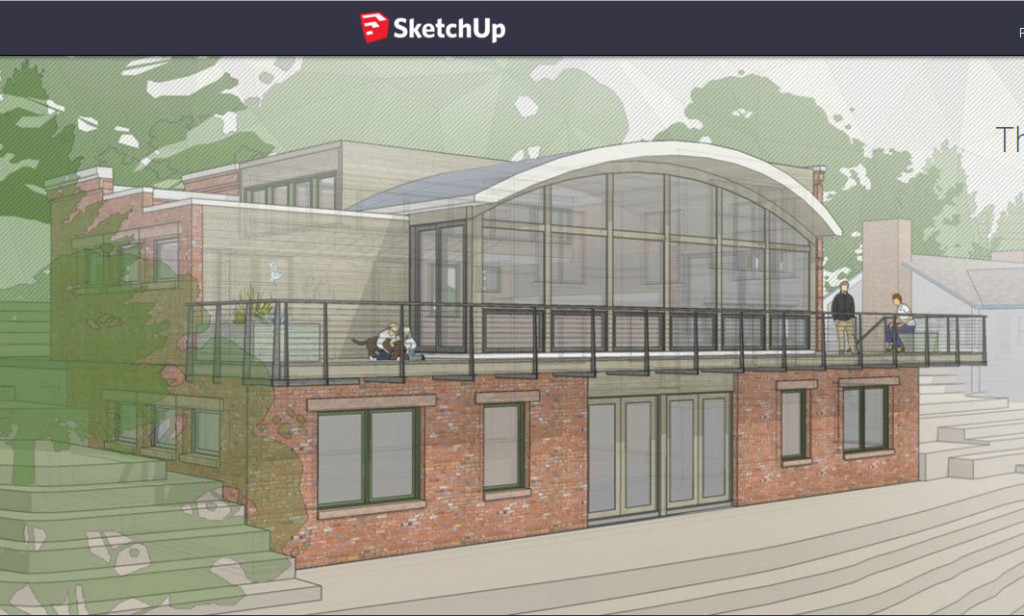
Your question “What software should I use?” is one I get asked a lot. The short answer is “Yes, Sketchup is a good program to know”.
The longer answer would be:
Well it depends on your intent. If you want to use a 3d program to help you with your designs, perspective, etc, then any program that you are familiar with, will be a powerful addition to your skill set. Google Sketchup was designed mainly for architects, and therefore has its limits, but if you can get the results you are after from it, then its worth while. Plus the program is ever evolving and improving, so who know what other features will be added down the line.
If your intent was to learn the tools that the professionals use when developing a video game, then you may be better off learning industry standard software like Max, Modo, and Maya to name a few. That said, I should also point out that there is no actual “industry standard”. Since the software used varies from shop to shop, the only way to know which studio uses which software is to do some research on a prospective studio (and even then, getting answers can be difficult, and the studio may shift software at any time).
Honestly, since nothing is really guaranteed, the best you can hope for when using a 3D program is to understand the core concepts of 3d modeling and be able to retain them across multiple programs. Obviously the more programs you know, then the more you can do, so knowing multiple programs is the best solution.
Hope that helps
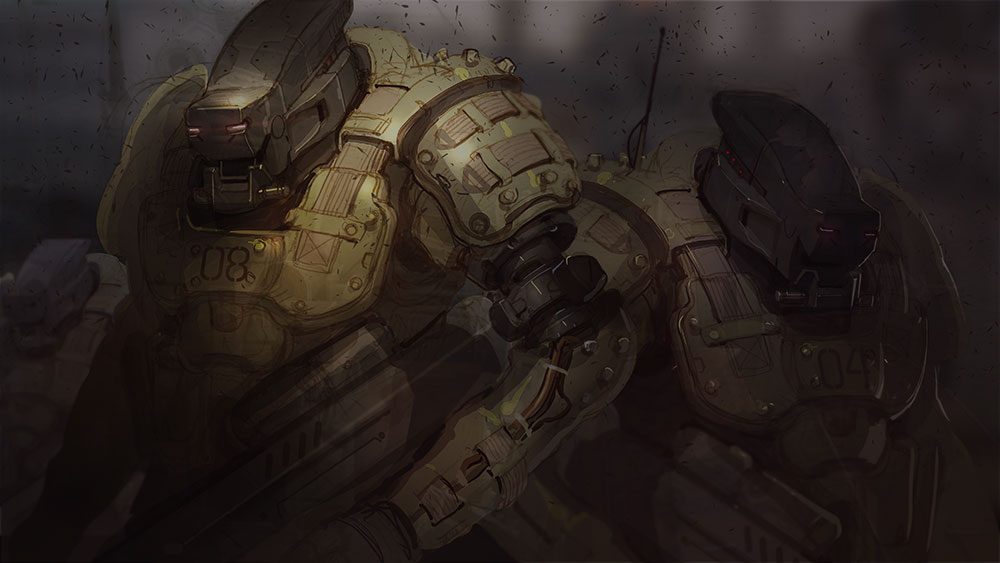
by Eliott Lilly | Nov 25, 2015 | Questions
Question submitted by Joe z
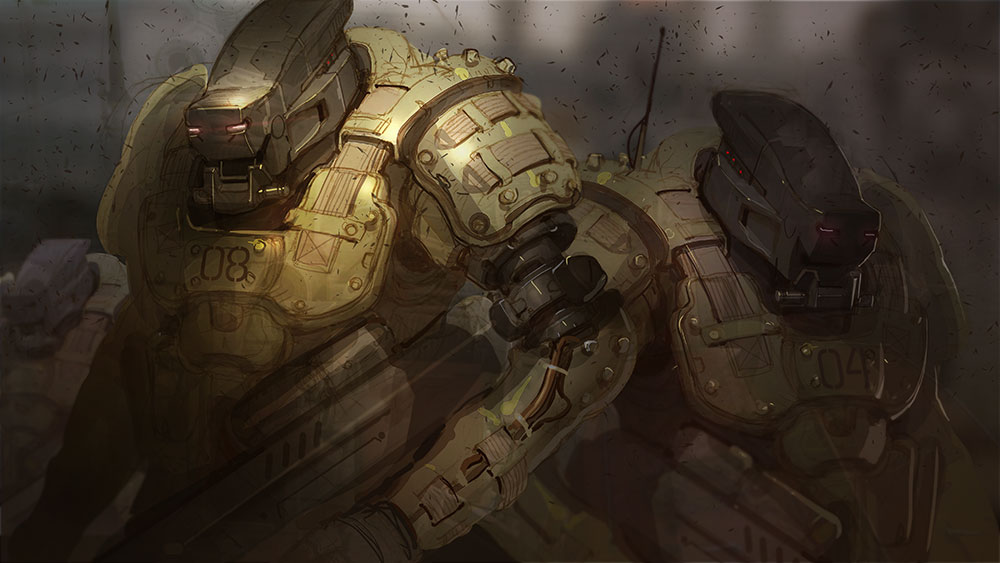
I’ve been working consistently as a remote contractor on a console game for about 7 months now… But when it comes time to sign my next apartment lease or make any big commitments I keep questioning whether my job/income will still be there. I feel that I should just work hard and go with the flow but how should I in factor all this “uncertainty of employment” when I am making decisions about the future?
Hey Joe, that is a great question! Here is my answer:
Since job security within the video game industry can be very unstable due to canceled projects, studio closings, and whatnot, your continued employment (even if you are working in house) is always uncertain. Therefore, when working in the industry (especially remotely/ freelance) it is always best to keep your expenses, bills and amount of possessions down to a minimum. I would refrain from making any large purchases for a long as possible (don’t buy a house or spend your check on rubbish) because you may have to relocate to your next job. This can be a hassle if you ever have to experience it. One of the best pieces of advice a friend gave me, was to look at car transporting services, like those provided by Cars Arrive Auto Relocation for example. This makes it easier to move your vehicle over to another state because you’ll have one less thing to worry about. Job relocations can be stressful, but sometimes they’re for the best. If you do need to make a big purchase then make sure you have a good credit score to make it easier to pay back what you owe as quickly as possible. If you don’t have any credit history then check out articles that talk about getting a credit card without credit history then start building your history from there. Sometimes making a big purchase is needed but at least make sure you pay off your debt as quickly as possible.
Here’s what you should do when planing around the uncertainty of employment:
Always keep in mind that your job is never secure. and therefore live modestly, below your means. Ideally, your rent should not be more than 1/3 of your paycheck AFTER TAXES. (More than that means your apartment is eating into the money needed to pay bills, student loans, deposit into your savings, etc.). You can sign a yearly lease, although month to month would be better. If you ever have to break your lease, (to relocate to a new job) then you should negotiate with the company who is hiring you, to pay the fees involved. Depending on how you pay for your energy bills, you might also want to do some research into switching energy providers to a more affordable plan, as quite often you can save money in this way. For example, one of my friends managed to make a huge saving on his utility bills by switching providers after he read several Champion Energy reviews online that seemed highly positive.
While the money is coming in, DON’T SPEND IT. SAVE IT. Build yourself a “nest egg”. Ideally you will want to start saving enough money to cover AT LEAST 6 months of your living expenses.
This buys you some time if an emergency ever comes up, or if you lose your job. If you have monies left over, then set up/ add funds to your retirement fund (401k, or Roth IRA) Since you are young, investing aggressively now will yield you A LOT of profit, down the road. It also means you pay less on taxes. If you DO want to treat yourself to the occasional video game or toy, that’s fine, but just remember that you will have to carry all of that stuff to whatever town/ state/ or country your next gig will be at.
I hope that helps.
If anyone has their own questions, please feel free to send an email to me@eliottlillyart.com, and I will do my best to answer them. Thanks.







